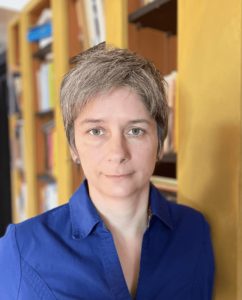A webinar presented by Marta Tecedor (Arizona State University).
Thursday, December 12, 2024,10-11:30 AM Arizona (UTC-7)
Here are the resources shared by the presenter:
- Click here to access presentation slides.
- talkabroad: talkabroad.com
- LinguaMeeting: linguameeting.com
- BOOMALANG: www.boomalang.co
- conversifi: conversifi.com
Abstract:
In the last few years, and particularly since the onset of the COVID 19 health crisis, Virtual Exchanges (VE) have grown in popularity among world language educators for their capacity for facilitating real-time, authentic, multimodal communication between learners and speakers of the target language and for their potential to increase learners’ contact hours with the target language outside the classroom.
Pedagogical initiatives that use VEs to promote interpersonal communication have traditionally been carried out in the context of e-tandems—virtual exchanges in which two learners with different native languages help each other learn their respective languages—and telecollaboration projects—virtual communications in formal educational settings between two or more students learning their interlocutor’s first language. Currently, a third model has started gaining popularity in formal educational settings: service-provider virtual exchanges (SPVE): one-on-one or small-group VE sessions between L2 learner(s) and a native speaker who receives economical compensation for their conversational services.
In this presentation, I will focus on the defining characteristics of SPVEs and discuss how this more recent model can be incorporated in the world language curriculum to bolster both intercultural and linguistic competence.
Bio:

Dr. Marta Tecedor is an assistant professor in Spanish linguistics at Arizona State University. She teaches graduate and undergraduate courses in teaching methods, second language acquisition, computer-assisted language learning, and Spanish linguistics. Her primary area of research is computer-assisted language learning with a focus on flipped and online curricular models. In particular, she examines how the use of multimedia technologies can be incorporated in the foreign language classroom to promote the development of linguistic, interactional, and intercultural competencies.
Participants attending live can request a certificate of attendance for 1.5 hours of Continuing Education at the end of the event. CERCLL will contact them after the webinar about how to request a digital badge.
Participants who require closed captions or an ASL interpreter during CERCLL’s events should make this request at least a week in advance by emailing CERCLL at cercll@email.arizona.edu.

